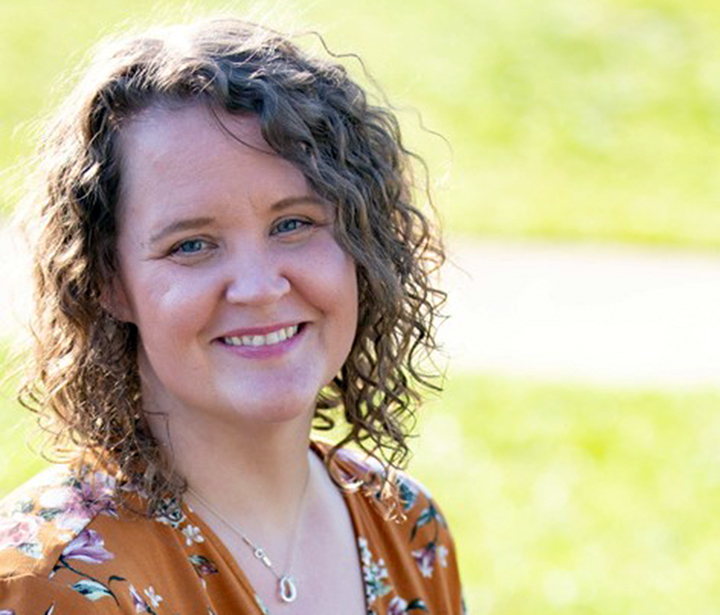Since its 2009 founding in Oklahoma, Truckers Against Trafficking (TAT) has changed the hearts and minds of millions of people in and around the trucking industry — and in the process, saved lives too. The nonprofit organization has grown, along with the programs it offers.
Today, TAT members and staff work with drivers and carriers, shippers, law enforcement, dealerships and government agencies to educate as many people as possible how to identify trafficking and what to do when they find it.
The organization began with an educational program aimed at truck drivers, who often viewed the prostituted people they encountered at truck stops and rest areas as either a sex resource or a nuisance — or both.
TAT asked drivers to consider that many of the women they patronized or criticized were, in fact, underaged victims of sex trafficking. TAT training enlightened drivers about the horrible lives the women experienced at the hands of the criminals who trafficked them and provided drivers with another option: Help them.
Today, TAT has expanded that training to include other areas where trafficking can occur, such as home deliveries, bus stops and just about anywhere. Uber, Lyft and similar services, which were just getting started when TAT was formed, now contract with drivers, who might observe trafficking anywhere.
In mid-January, during Human Trafficking Awareness Month, The Trucker caught up with Liz Williamson, a training specialist and survivor leader for TAT, on location while she was participating in two training videos for TAT.
“I think sometimes when you start an organization like TAT, you do have this very localized perspective,” she said. “And then you realize, ‘It’s much bigger than I imagined.’ And at this point, you know, they’ve trained 1.5 million drivers.”
Some of those drivers were trained through carrier programs that used TAT materials. Many others, however, simply went to the website, truckersagainsttrafficking.org, and participated in the available video training as individuals.
But truck drivers aren’t the only people that observe signs of trafficking. Delivery drivers, utility employees and others can identify and report trafficking.
“There was a misconception for a while that you couldn’t be trafficked within your own home, but that was certainly my experience for sure,” said Williamson, who has experienced human trafficking firsthand.
“I told them I wanted to do the in-home delivery training video because there were certain aspects of my trafficking experience within the home that would have just been off-putting to anyone else if they walked into my house,” she said. “They would have immediately said, ‘There’s something wrong.’”
Williamson describes being trafficked by her own mother, starting at the age of 6. Her home featured locks to keep her in the bedroom, and there was pornography playing on the television 24/7 — signs that she points out could have alerted any visitor that trafficking was occurring.
At age 23, she left her trafficking situation. A compassionate bus driver named Paul offered her a brief shelter from the weather and a homemade sandwich. “I almost cried when he gave me that sandwich, because he really didn’t want anything in return,” she remarked.
Williamson described another situation, experienced by a woman with whom she was working during the video production.
“The mom of her trafficker had an in-home day care that took care of the girls’ children,” she explained. “And she was like, ‘I had to do this. They had my children.’”
Williamson also addressed the common usage of the a common but demeaning term, “lot lizard.”
“Truthfully, it dehumanizes you as a person. I understand the perspective that (the drivers) come from — that it’s a nuisance to have prostitution, and I understand all of that,” she said. “However, you’re forgetting that this is a human being. Because I guarantee they wouldn’t use the term ‘lot lizard’ if that was a family member of theirs.”
There’s another reason she eschews the term.
“It also makes that trafficked person out to be the issue, and not the demand (for sex trafficking) itself,” she said. “Because, at the end of the day, I wouldn’t be out in the parking lot, selling myself if someone wasn’t buying.”
When Asked what conditions might make a driver suspicious that trafficking is occurring, Williamson was quick to note that trafficking victims are not always women.
“You’re looking for (both) male or female. We don’t want to forget that happens to boys too, who may be going from car to car, offering some type of services,” she said. “They could be not dressed weather-appropriate, just because that clothing is easier to take on and off.”
There are other signs to watch for as well.
“You could be seeing that they come and go at regular intervals. Maybe they’re dropped off by a driver in a group and then they’re picked up, you know, a half hour later,” she said. “You could notice signs of abuse. Or, you could just be thinking to yourself, ‘It’s 3 a.m. What are they doing out there?’”
Identifying trafficking, or at least being aware of suspicious situations, doesn’t help if action isn’t taken. TAT supports the use of the National Human Trafficking Hotline, 888-373-7888, to report suspicious activity or to seek help. The hotline is maintained by Polaris, an international anti-trafficking organization.
Williamson stressed that 911 gets the call if a crime is being committed, but that the TAT hotline may have access to more resources than a local emergency responder. Once the police are notified, the hotline can call on local nonprofits that specialize in trafficking and can offer shelter, counseling or other services.
Calling the hotline also helps TAT compile statistical information that may not be automatically shared by local authorities.
Drivers and other people who are interested in helping fight human trafficking can obtain a wallet card, truck decals and other helpful materials through the TAT website, truckersagainsttrafficking.org. There is also a free TAT mobile app, available on Google Play and the Apple App Store.
Freeing a person from the bonds of human trafficking is only one step in the journey to freedom.
Williamson says she’s happily married today but that it has been a struggle to adapt to life outside of trafficking.
“I wasn’t convinced there was more to life,” she said. “You couldn’t have sold me that kind of fairy tale. I was just tired of being sold.”
With no other available resources, she found herself in a homeless shelter.
“I just made it work,” she explained. “There should always be credit given to the survivor’s absolute gumption to just pull yourself up by the bootstraps. That’s a very American sentimentality.”
At the same time, she wants other victims to know that help is out there if they want it.
For Williamson, the path after getting free was difficult, in large part because she hadn’t been taught how to survive in a “normal” world.
“I had a degree, but I didn’t have any life skills,” she said. “I didn’t know how just to do normal life, because in the background, I had been sold from age 6.”
As she recovered from her ordeal, Liz worked with groups that provided services to minors, talking about her experiences. She became aware of TAT through a personal friendship with Kylla Lanier, current TAT deputy director and senior director of public sector engagement.
“She helped me remember things I didn’t think about,” Williamson said. “She asked, ‘What experience did you have with public transportation while you were trafficked?’ — things I hadn’t thought about for a while.”
Today, Williamson says, “My life is dramatically different. It’s really good. But I will say that I’ve never forgotten where I came from.”
She runs several online support groups, including one specifically for survivors of familial trafficking. She works with a support group for girls from other forms of trafficking, such as Romeo pimps (traffickers who control victims through romantic means) or gorilla pimps (who control victims through physical or psychological abuse), helping them adapt to new lives.
“It’s called ‘Ending the game,’ and I’m glad to work on it because it’s super-important to have peer support,” she said.
Even though Williamson still occasionally struggles with life in the “normal” world, she’s determined to help others find and live the rest of their best post-trafficking lives.
Like many others involved in TAT, she is determined to make a difference — and she’s doing so, one heart and mind at a time.
Cliff Abbott is an experienced commercial vehicle driver and owner-operator who still holds a CDL in his home state of Alabama. In nearly 40 years in trucking, he’s been an instructor and trainer and has managed safety and recruiting operations for several carriers. Having never lost his love of the road, Cliff has written a book and hundreds of songs and has been writing for The Trucker for more than a decade.












This a great story. We wish that moms and dads and grandparents could read this story. Liz is a brave and hard working lady. We applaud her for what she does and for being so candid about her life as victim and a survivor.